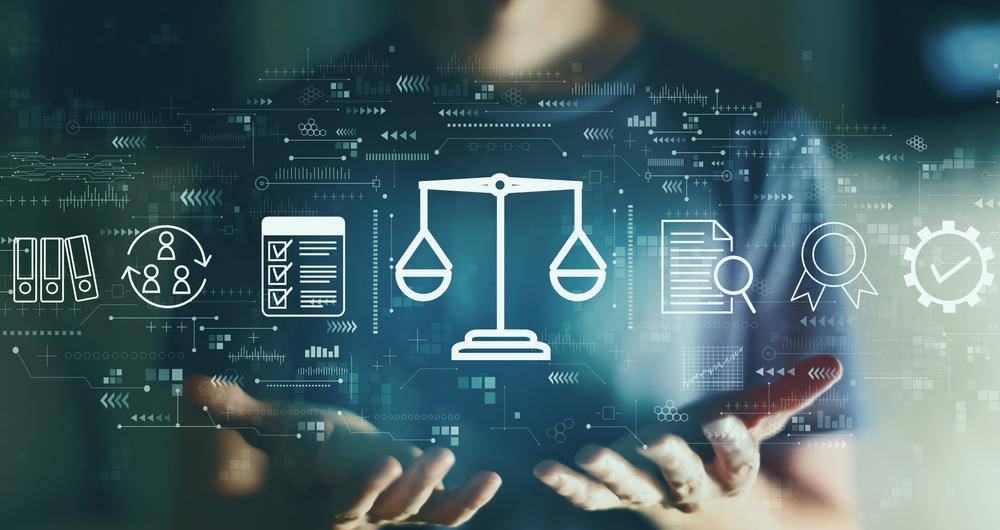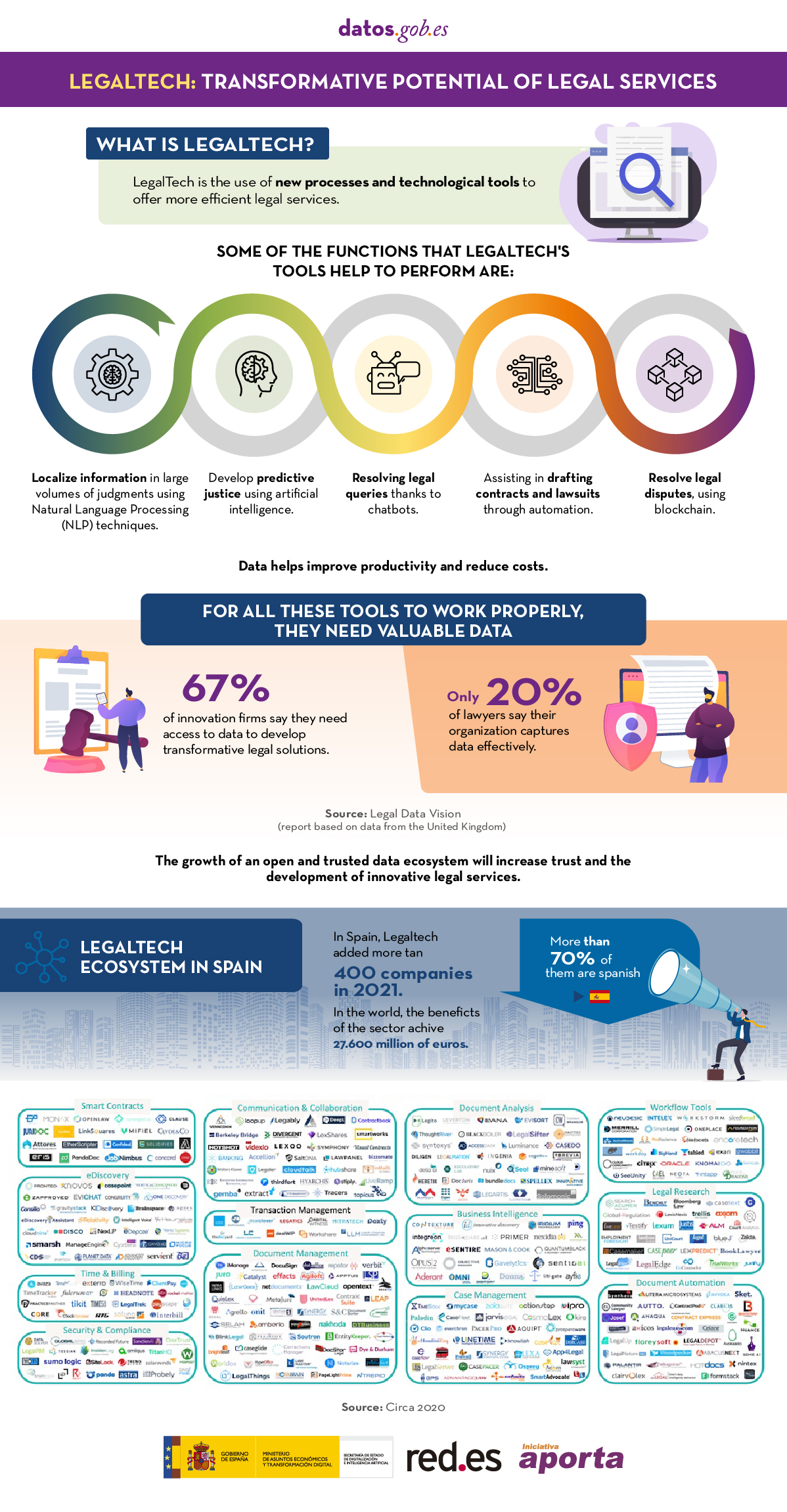
Digital transformation affects all sectors, from agriculture to tourism and education. Among its objectives is the optimization of processes, the improvement of the customer experience and even the promotion of new business models.
The legal sector is no exception, which is why in recent years we have seen a boom in solutions and tools aimed at helping lawyers to perform their work more efficiently. This is what is known as LegalTech.
What is LegalTech?
The LegalTech concept refers to the use of new technological processes and tools to offer more efficient legal services. It is therefore an extensive concept, applying both to tools that facilitate the execution of tasks (e.g. financial management) and to services that take advantage of disruptive technologies such as artificial intelligence or blockchain.
The term LawTech is sometimes used as a synonym for LegalTech. Although some legal scholars say that they are distinct terms and should not be confused, there is no consensus and in some places, such as the UK, LawTech is widely used as a substitute for LegalTech.
Examples of LegalTech or LawTech tools
Through the application of different technologies, these tools can perform different functions, such as:
- Locating information in large volumes of judgments. There are tools capable of extracting the content of court rulings, using Natural Language Processing (NLP) techniques. The aim of these tools is to facilitate the filtering and location of information of interest, as well as to make it available to the user in a visual way. This helps lawyers to carry out a better investigation and, consequently, to reduce the preparation time of cases and to define more solid procedural strategies. An example of a tool in this area is Ross Intelligence.
- Perform predictive analytics. In the market we also find tools aimed at analyzing sentences and making predictions that anticipate the behaviors and outcomes of, using artificial intelligence. These tools try to answer questions such as how long a judicial process will take, what is the most probable sentence or if there is a possibility of appeal. Tools of this type are LexMachina, Blue J, IBM's Watson or Jurimetria.
- Solving legal queries. Using AI-based conversational assistants (chatbots), answers can be given to various questions, such as how to overcome parking fines, how to appeal bank fees or how to file a complaint. These types of tools free lawyers from simple tasks, allowing them to devote their time to more valuable activities. An example of legal chatbots is DoNotPay.
- Assist in drafting contracts and lawsuits. LegalTech tools can also help automate and simplify certain tasks, generating time and cost savings. This is the case of Contract Express, which automates the drafting of standard legal documents.
- Resolving legal disputes. There are some disputes that can be resolved simply using open source technology tools such as Kleros, an online dispute resolution protocol o. Kleros uses blockchain to resolve disputes as fairly as possible.
The role of open data in Legal Tech
For all these tools to work properly, optimizing the work of jurists, it is necessary to have valuable data. In this sense, open data is a great opportunity.
According to the Legal Data Vision initiative, which uses UK data and was launched in March 2022, by LawtechUK and the Open Data Institute 67% of innovation companies claim to need access to data to develop transformative legal solutions and only 20% of lawyers claim that their organization captures data effectively. This initiative aims to promote responsible access to and use of legal data to drive innovation in the industry and deliver results that benefit society.
According to Gartner, legal areas are set to increase spending on technology solutions by 200% by 2025. In countries such as France, a large number of start-ups focused on this area are already emerging, many of which reuse open data. In Spain we are also experiencing an expansion of the sector, which will enable improvements to be implemented in the processes and services of legal companies. In 2021 there were more than 400 companies operating in this field and, globally, according to figures from Stadista, the sector generated more than €27 billion.
However, for this field to make further progress, it is necessary to promote access to judgments in machine-readable formats that allow mass processing.
In short, this is a booming market, thanks to the emergence of disruptive technologies. Legal firms need access to up-to-date, quality information that will enable them to perform their work more efficiently. One of the methods to achieve this is to take advantage of the potential of open data.
(Click here to access the accessible version)
Content prepared by the datos.gob.es team.



